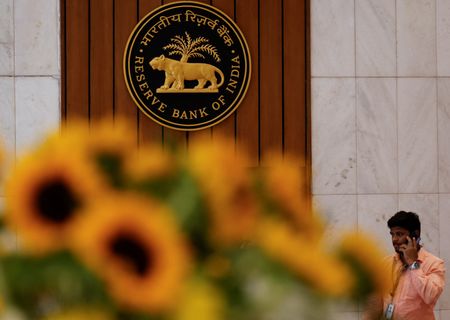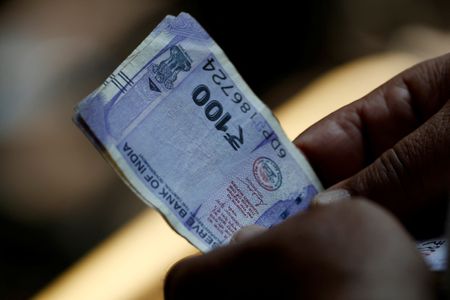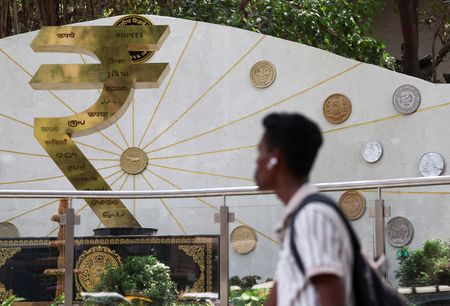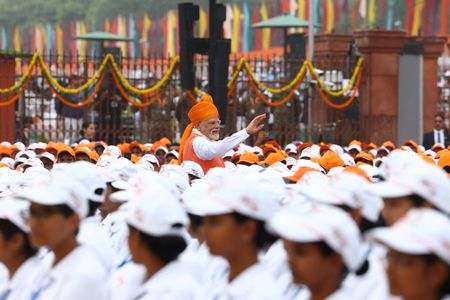By Swati Bhat
MUMBAI (Reuters) – India’s inflation is seen aligning with the target of 4%, which opens up space for monetary policy to address concerns on the growth front, members of the rate-setting committee said in the minutes of the latest meeting released on Friday.
Earlier in February, India’s Monetary Policy Committee (MPC) cut the repo rate by 25 basis points in the first such move in nearly five years. The MPC includes three Reserve Bank of India members and three external members.
“There is a need to preserve the high growth momentum over the medium term, necessitating monetary policy to be sensitive to the evolving growth scenario and use various policy instruments including liquidity injection to reinvigorate growth,” Rajiv Ranjan, an RBI executive director and member of the MPC said.
India’s government has forecast annual growth at a four-year low of 6.4% for the year ending March.
Subdued private consumption due to low real wage growth is a factor behind the slowdown, but excessively contractionary monetary policy has aggravated the problem, external member Ram Singh said.
A demand push will not result in higher private capital expenditure unless interest rates are reduced immediately, Singh argued, saying the government has provided the push through income tax cuts in the budget.
The MPC members agreed that inflation is on a downward trajectory. India’s retail inflation slowed to a five-month low of 4.31% in January as food price inflation eased.
India’s budget proposals on agriculture and the commitment to fiscal consolidation are positive for price stability and would help anchor inflation expectations over the medium term, RBI Governor Sanjay Malhotra said.
“The food inflation outlook is turning decisively positive,” he said.
India’s central bank targets inflation at 4% with a tolerance band of 2 percentage points on either side.
“Given the forecast inflation trajectory, the policy repo rate might soon, if not even as of now, become excessively restrictive, thereby increasing the risk of cumulatively damaging growth impulses,” external member Saugata Bhattacharya said.
External member Nagesh Kumar said the panel could be more ambitious and target a 50-basis-point cut but voted for 25 basis points given global uncertainties.
“It would send a signal to the markets and private investors within and outside the country that India is serious and would do whatever it takes to revive economic growth momentum,” he said.
(Reporting by Swati Bhat; Editing by Mrigank Dhaniwala)











